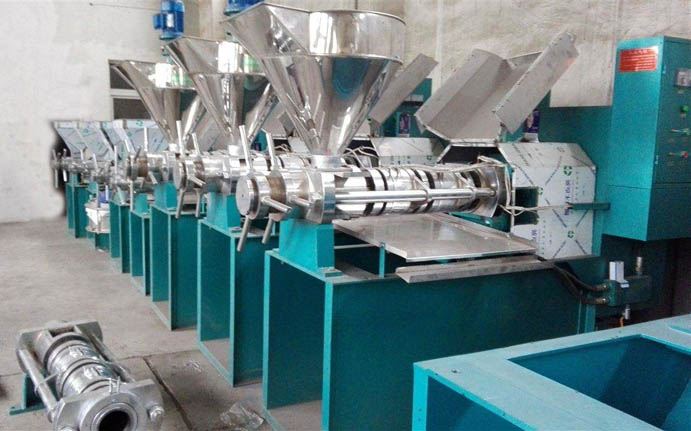Reasons for lower oil yield of oil press
Oil pressing is an important process in the extraction of oil from various raw materials. However, In the process of using oil press, no matter automatic oil press or traditional screw oil press, sometimes the oil yield may be lower than expected.
Then, what’s reason for the lower oil yield of oil press?
One of the main reasons for lower oil yield is the blocking of the pressing bar by oil dregs and detritus or the pressing bar being installed too tight. This can happen during the inspection process, and the solution is to clean up the oil dregs or detritus and adjust the firmness of the pressing bar.

Another reason for lower oil yield is the moisture content of the material being too high or using hollow kernels. In such cases, it is essential to control the quality of raw materials to ensure that they are suitable for oil pressing.
During the actual operation process, if the parts of the oil press wear out, this can also cause lower oil yield. In such cases, it is necessary to replace the worn-out parts to avoid wasting raw materials and unnecessary trouble during the operation process.
In addition to these factors, there are other reasons for lower oil yield, such as improper temperature control, incorrect adjustment of the pressing time, and inadequate pressure during pressing. Before pressing with oil press each time, preheating of the machine should be made. Under the general condition, the preheating temperature in spring and summer is usually between 50-70 degrees. In autumn and winter, the preheating temperature is usually between 70-90 degrees. If the temperature can not be well controlled, it would have large influence on the future operations. Therefore, it is essential to pay attention to these factors during the oil pressing process.
To ensure a high oil yield during oil pressing, it is necessary to follow some best practices. Firstly, it is essential to select high-quality raw materials and ensure that they are suitable for oil pressing. Secondly, it is necessary to clean the oil press regularly to prevent blockages and wear. Thirdly, it is essential to adjust the equipment properly and maintain it regularly to ensure that it operates at optimal conditions.
In conclusion, lower oil yield can be caused by several factors during oil pressing. It is essential to identify the cause and take appropriate measures to address it. By following the best practices, it is possible to achieve a high oil yield and ensure efficient oil pressing.

